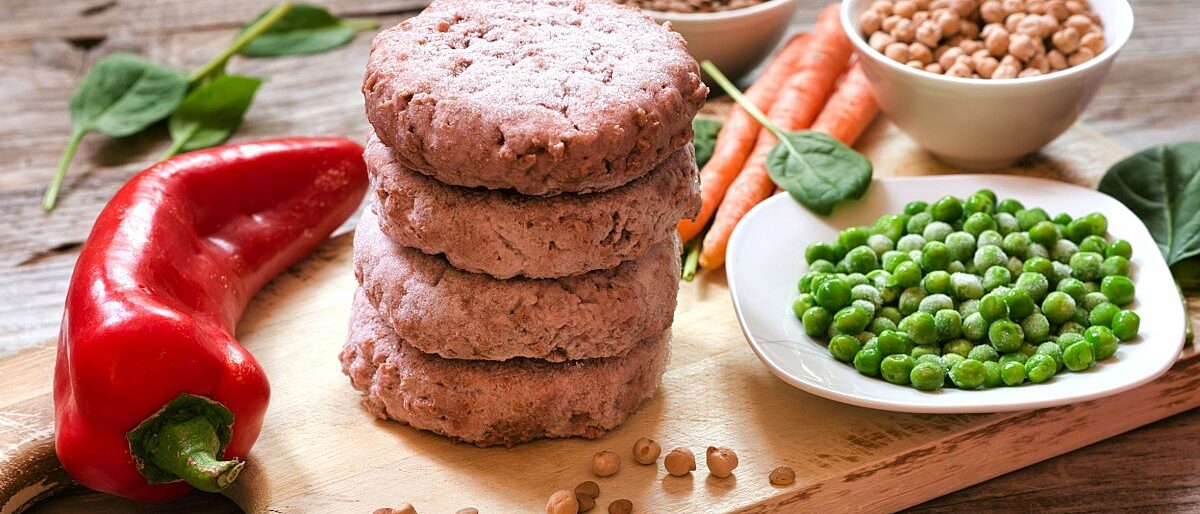
Partners & Roles
- DSM: Royal DSM is a global, purpose-led, science-based company active in Nutrition, Health, and Sustainable Living and will be the lead partner of the consortium in charge of organization and updating of working hypothesis, in addition to - Providing physical characterisation, sensory panel, and data analysis for WP 2 - Co-producing prototypes in WP 3. - Providing insights into how ingredients influence the formulation and how this in turn influences juiciness.
- University of Aarhus: Department of Food Science at Aarhus University (AU-FOOD) performs research on food chemistry and technology, and has extensive experience in food biophysics and structure characterization. State-of-the-art facilities aligned to this research area include static and dynamic light scattering (DLS), confocal microscopy, texture analysis, tensiometry, rheometry, differential scanning calorimetry (DSC), and low-field NMR relaxometry. In this project, AU-FOOD will perform NMR relaxation measurements, which is a research field where Prof. Hanne Christine Bertram from AU-FOOD has been pioneering in developing this methodology for characterization of water mobility and distribution and in establishing the relationship between intrinsic food structures and water mobility and distribution in meat-based products. Besides, the sensory group at AU-FOOD, which has extensive experience in sensory science, will conduct sensory descriptive analyses in the project.
- Roquette: - Provide materials to produce “reference” burgers (like the ones in the market); these materials will be, if we are logical, one of our commercial TVPs - Provide materials to produce experimental burgers with improved juiciness, and during that phase, we will supply protein isolates, not TVPs, the texturization (extrusion) being conducted by Fraunhofer. - Roquette will contribute to the discussions and will contribute by providing advice, information, and comments. | 047 University of Turin: Department of Agricultural, Forest and Food Sciences at University of Turin (AGRIFORFOOD) performs researches on crop and animal science; forest and wood; viticulture and oenology; plant genetics and physiology; plant health; soil resource and landscape ecology; food technology and food microbiology; engineering, ICT and bioenergy; agricultural and forest economics. In this project, AGRIFORFOOD will contribute to the implementation of a toolbox of physical measurements on food, performing physical analysis on juice holding/loss of uncooked, during cooking and cooked products. Products will be meat, available commercial benchmarks, and TVP-based prototypes. On meat Salvatore Barbera has developed a methodology and some instruments to measure water holding capacity (WHC), meat cooking shrinkage, and hardness.
- Hain Daniels: Hain Daniels is a producer of plant protein-based meat alternatives, e.g. with its Linda McCartney’s brand https://lindamccartneyfoods.co... and Unbelievable Alt brand https://theunbelievablealt.com.... Hain Daniels is the linking pin to the consumer and is expected to integrate the project findings into improved products. Its main contribution will be in 2022 when prototypes will have to be upscaled and validated with consumer panels. In 2021 Hain Daniels will lead the evaluation of the consumer relevance of juiciness.
- Fraunhofer: Fraunhofer has long-term experience in plant-based proteins with a strong focus on extraction, characterisation, and utilization of new plant protein sources. Furthermore, modification of proteins using extrusion for the development of textured plant protein, as well as their formulation into final products is a core expertise of Fraunhofer. Within this activity, Fraunhofer will take lead in the RTD task product development for extruded products (TVP) (work package 3 ). Fraunhofer´s experience and its facilities for extrusion technology (lab, pilot plant) and meat alternative formulation (burgers and chicken alternatives) will provide adequate background to perform all the scientific / development targets. Additionally, their experienced scientists in analytics and sensorial evaluation will contribute to the ingredient and product evaluation and analysis, to be performed within work package 2 (2.1 and 2.2).
- Lund U: Department of Food Technology, Engineering, and Nutrition at Lund University (Food-LU) have a long tradition in research on colloidal and molecular structural changes in the chain from raw material to food. The relationship between structure and quality characteristics has been studied by Professor Eva Tornberg in mainly three areas namely the surface and colloid science of food proteins, eating quality and physical-chemical properties of meat and meat products, and physical-chemical properties of diet fibre products. In this project, we will contribute with general knowledge in meat science and to do measurements such as rather simple water holding measurements usually used for meat and compare it to meat analogues. Colloidal aspects of emulsions like oil droplet size distributions and texture (rheology) and microstructural (light and electron microscopy (SEM)) of the products to be studied can be conducted in the project.
more